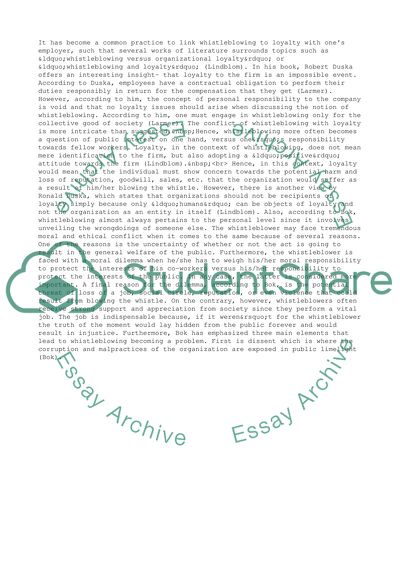Cite this document
(Whistleblowing and Professional Responsibility Literature review, n.d.)
Whistleblowing and Professional Responsibility Literature review. Retrieved from https://studentshare.org/management/1448084-is-it-whistleblowing-ethic-or-not
Whistleblowing and Professional Responsibility Literature review. Retrieved from https://studentshare.org/management/1448084-is-it-whistleblowing-ethic-or-not
(Whistleblowing and Professional Responsibility Literature Review)
Whistleblowing and Professional Responsibility Literature Review. https://studentshare.org/management/1448084-is-it-whistleblowing-ethic-or-not.
Whistleblowing and Professional Responsibility Literature Review. https://studentshare.org/management/1448084-is-it-whistleblowing-ethic-or-not.
“Whistleblowing and Professional Responsibility Literature Review”, n.d. https://studentshare.org/management/1448084-is-it-whistleblowing-ethic-or-not.


